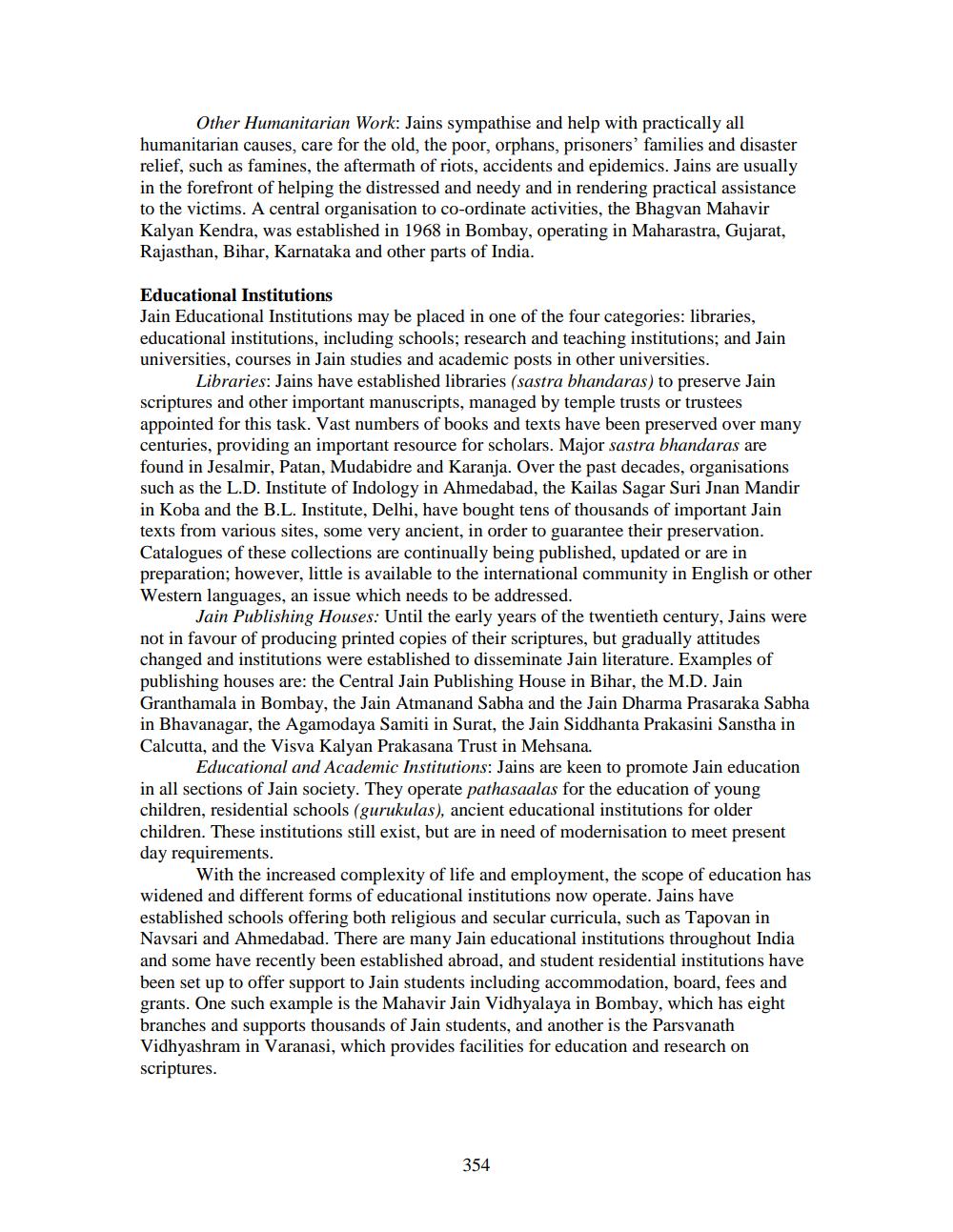________________
Other Humanitarian Work: Jains sympathise and help with practically all humanitarian causes, care for the old, the poor, orphans, prisoners' families and disaster relief, such as famines, the aftermath of riots, accidents and epidemics. Jains are usually in the forefront of helping the distressed and needy and in rendering practical assistance to the victims. A central organisation to co-ordinate activities, the Bhagvan Mahavir Kalyan Kendra, was established in 1968 in Bombay, operating in Maharastra, Gujarat, Rajasthan, Bihar, Karnataka and other parts of India.
Educational Institutions Jain Educational Institutions may be placed in one of the four categories: libraries, educational institutions, including schools, research and teaching institutions; and Jain universities, courses in Jain studies and academic posts in other universities.
Libraries: Jains have established libraries (sastra bhandaras) to preserve Jain scriptures and other important manuscripts, managed by temple trusts or trustees appointed for this task. Vast numbers of books and texts have been preserved over many centuries, providing an important resource for scholars. Major sastra bhandaras are found in Jesalmir, Patan, Mudabidre and Karanja. Over the past decades, organisations such as the L.D. Institute of Indology in Ahmedabad, the Kailas Sagar Suri Jnan Mandir in Koba and the B.L. Institute, Delhi, have bought tens of thousands of important Jain texts from various sites, some very ancient, in order to guarantee their preservation. Catalogues of these collections are continually being published, updated or are in preparation; however, little is available to the international community in English or other Western languages, an issue which needs to be addressed.
Jain Publishing Houses: Until the early years of the twentieth century, Jains were not in favour of producing printed copies of their scriptures, but gradually attitudes changed and institutions were established to disseminate Jain literature. Examples of publishing houses are: the Central Jain Publishing House in Bihar, the M.D. Jain Granthamala in Bombay, the Jain Atmanand Sabha and the Jain Dharma Prasaraka Sabha in Bhavanagar, the Agamodaya Samiti in Surat, the Jain Siddhanta Prakasini Sanstha in Calcutta, and the Visva Kalyan Prakasana Trust in Mehsana.
Educational and Academic Institutions: Jains are keen to promote Jain education in all sections of Jain society. They operate pathasaalas for the education of young children, residential schools (gurukulas), ancient educational institutions for older children. These institutions still exist, but are in need of modernisation to meet present day requirements.
With the increased complexity of life and employment, the scope of education has widened and different forms of educational institutions now operate. Jains have established schools offering both religious and secular curricula, such as Tapovan in Navsari and Ahmedabad. There are many Jain educational institutions throughout India and some have recently been established abroad, and student residential institutions have been set up to offer support to Jain students including accommodation, board, fees and grants. One such example is the Mahavir Jain Vidhyalaya in Bombay, which has eight branches and supports thousands of Jain students, and another is the Parsvanath Vidhyashram in Varanasi, which provides facilities for education and research on scriptures.
354




